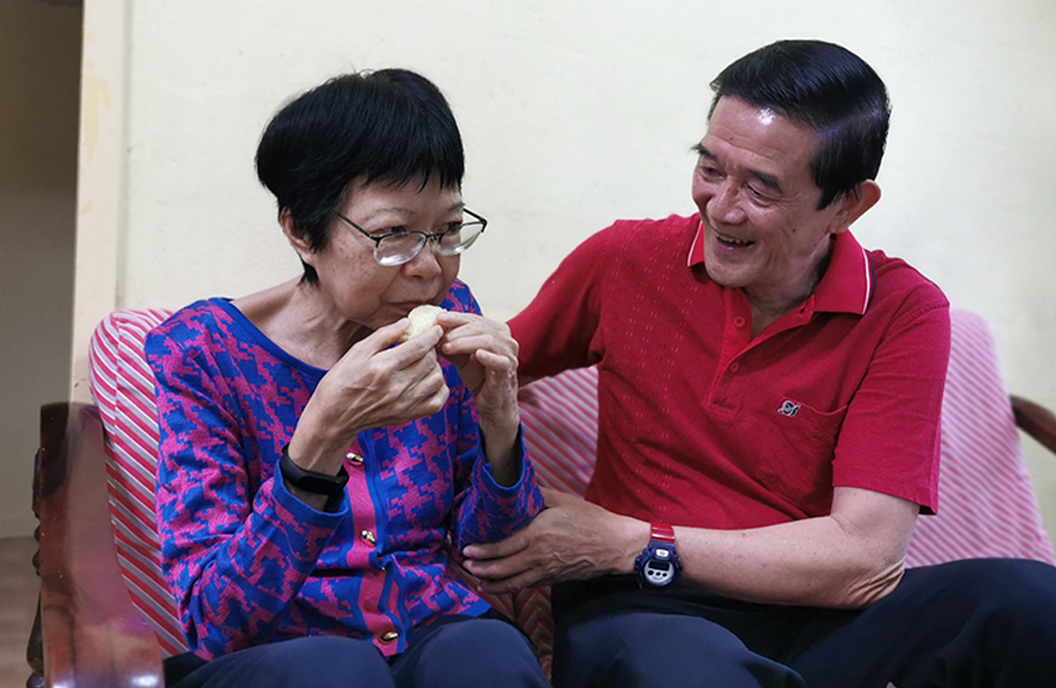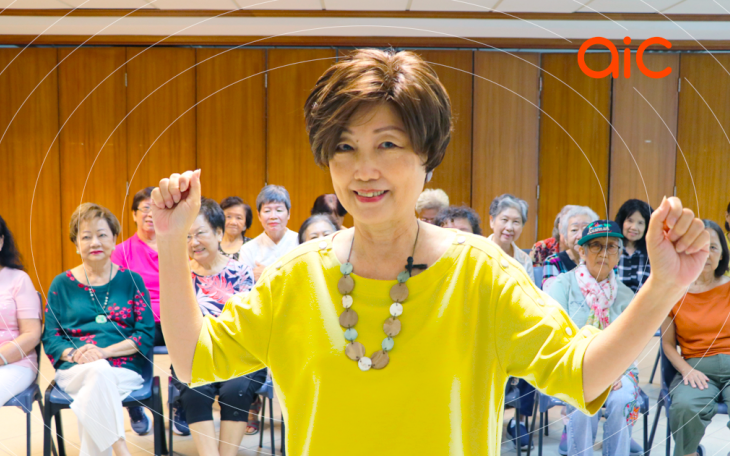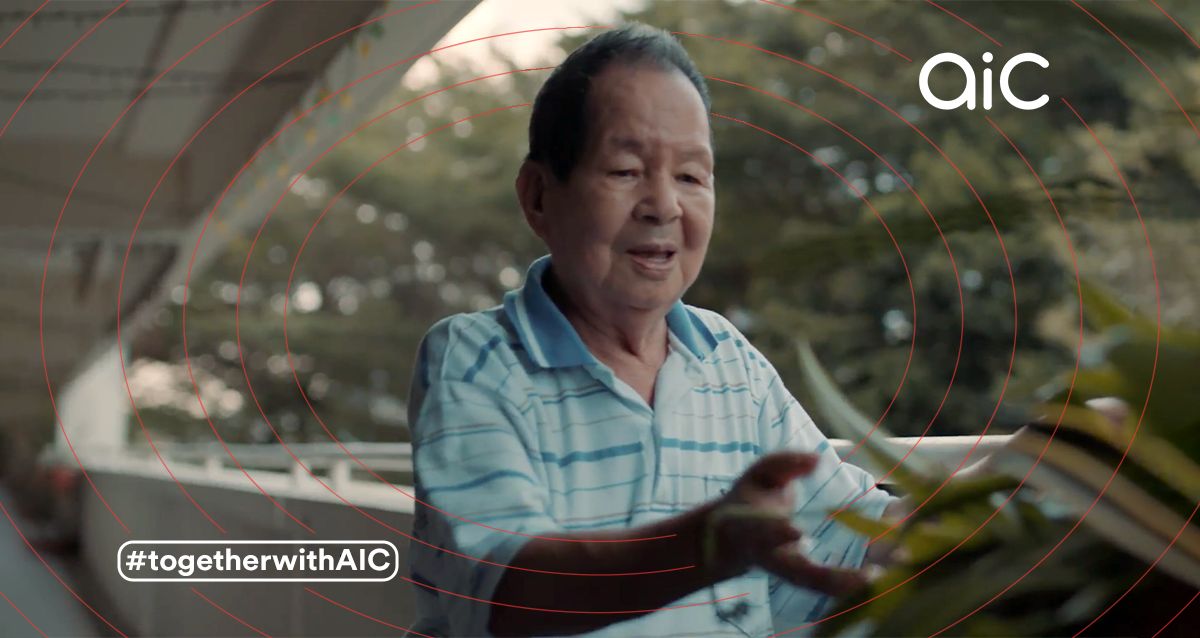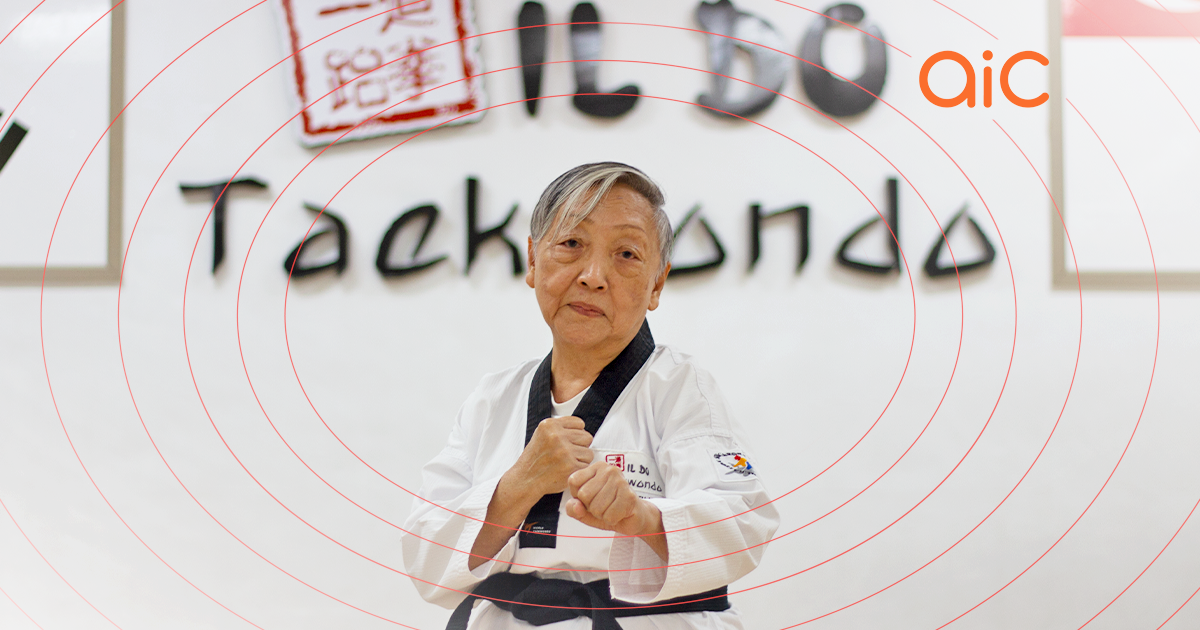In the living room of 70-year-old Mr Colin Chong, pictures of his family of five decorate the wall. Among them are memories of the family celebrating birthdays, Colin and his wife, Joyce, on vacation and the pair’s wedding anniversary date.
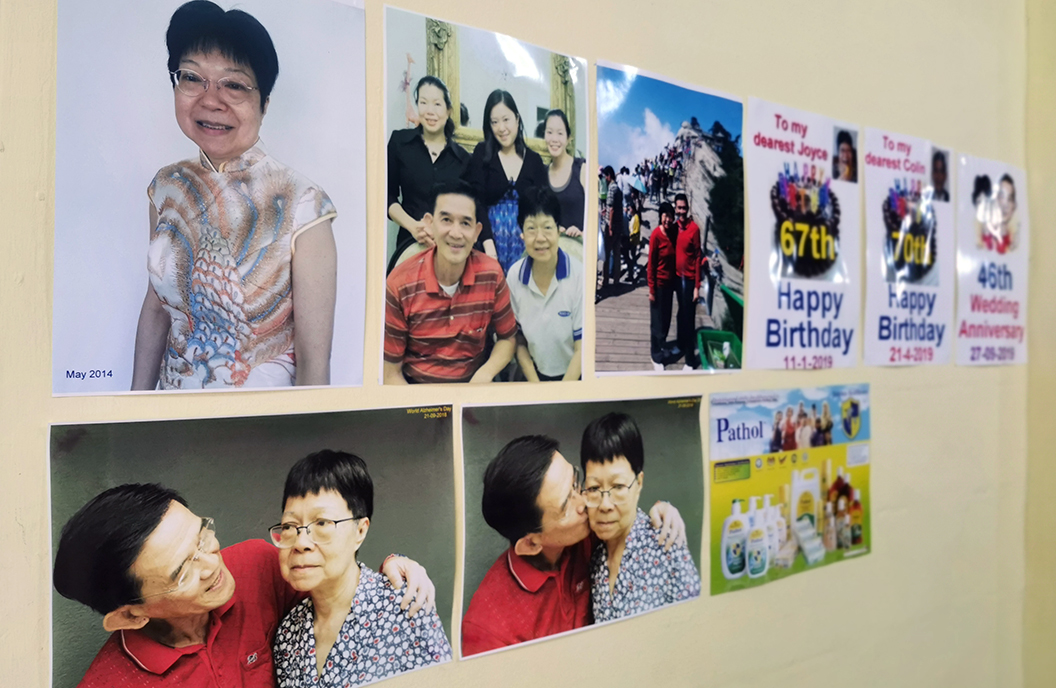
These are happy memories for the Chong family, except that Joyce does not remember her three daughters' names, nor does she recall the date of her wedding anniversary.
Colin shares this poignant note with us in his home in Toa Payoh. Beside him, Joyce was having her breakfast, oblivious to the unfamiliar visitors in her home or the morning news on television. Colin sits next to her, regularly lifting her arm so that she remembers to eat the banana in her hand. On occasion, she smiles when Colin sings or talks to her, but for the most part, she seems lost in her own world.
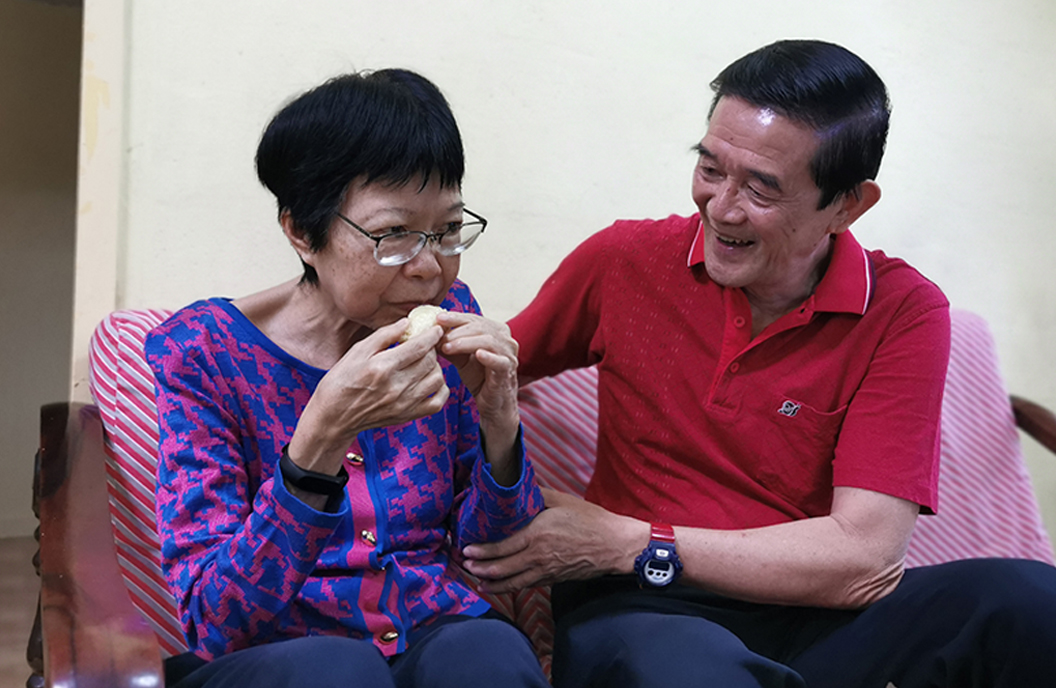
12 years ago, Colin and their three daughters noticed that Joyce was becoming forgetful. They missed appointments as Joyce misremembered the details. She also started misplacing things such as keys. It was only after they consulted a doctor and did an MRI scan that they confirmed she was experiencing the onset of dementia.
Today, 67-year-old Joyce’s condition has advanced to a stage where she does not speak and needs assistance in regular daily activities such as brushing her teeth, dressing, and eating.
Despite this, Colin continues to shower her with love and affection.
“Even though she may have forgotten facts, she can still feel love. When I hug her, she is happy, and she smiles. She may not remember her daughters’ names, but she is still happy when she sees them. It is good to show your love because I know she can feel it,” Colin says.
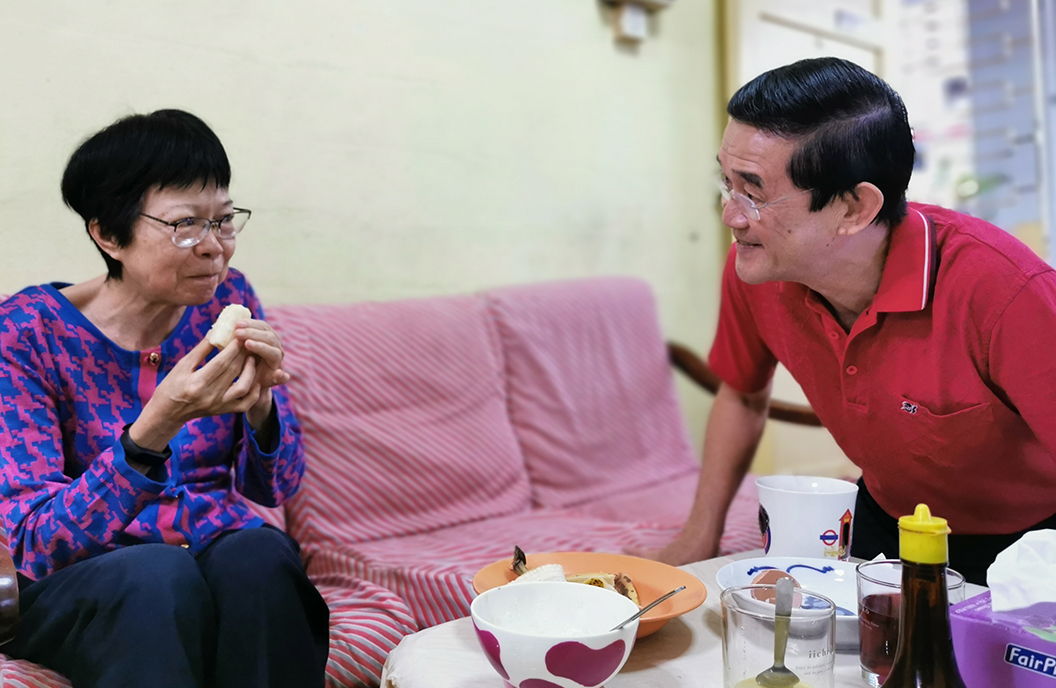
Initially, as Joyce’s dementia advanced, Colin was flustered with why she didn’t even want to take care of regular hygiene such as showering or brushing her teeth. But as he learnt more about dementia through online research and by joining caregiver support groups, he has come to accept and adapt to some of her new habits and preferences.
Instead of telling her the right way to do things, he observed her actions and adjusted his ways. For instance, when it comes to brushing her teeth, he notices that she cannot complete the whole process on her own. What Colin did to coax her to brush her own teeth was to squeeze the toothpaste onto her toothbrush and put it in her hand near her mouth. It worked.
Maintaining a Routine and Doing Things She Enjoys
As dementia is caused by abnormal brain changes, it affects a person’s memory, thinking and reasoning skills. When placed out of the person’s comfort zone, she may get upset and anxious, but familiarity can take the anxiety away. This is why Colin maintains a regular routine with Joyce, and continues doing things she loved in the past.
One of these familiar activities is badminton. The sport was one of Joyce’s favourite activities, and after the diagnosis, Colin made it a point to have a game with her twice a week.
Joyce enjoyed the sessions and Colin felt that the exercise would be good for her as well. It was only earlier this year that they stopped playing after she developed problems judging distance, which is another symptom of dementia.
It was also around this time that Colin, who had been Joyce’s sole caregiver for the last 12 years, decided to explore community care options. As he turned 70 this year, Colin worries that he may not be able to cope with the demands of being Joyce’s sole caregiver, while also managing his pharmaceutical business.
In June, Colin contacted the Alzheimer’s Disease Association, and through them, signed Joyce up for New Horizon Centre’s day care services. She now goes to the centre five days a week.
At the centre, Joyce is looked after by a care team and participates in exercises, games, and therapy sessions. Colin feels that Joyce is able to be engaged physically and mentally at the centre.
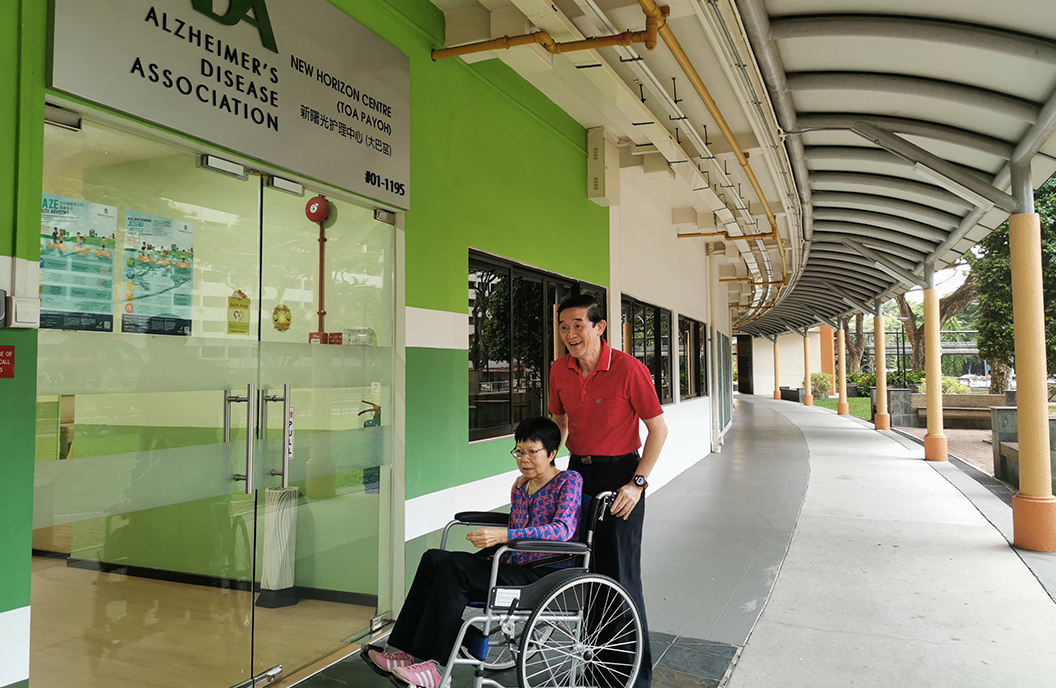
The Importance of Caregiver Respite
The time Joyce spend at the centre is also a form of respite for Colin. He uses that time to manage his business, which he now runs from home, and to take a break from caregiving duties. In addition, he continues to meet up with friends for badminton twice a week to maintain his fitness level.
“I think it is important for caregivers to take care of their health. If something happens to the caregiver, it will affect the person you are caring for,” Colin says.
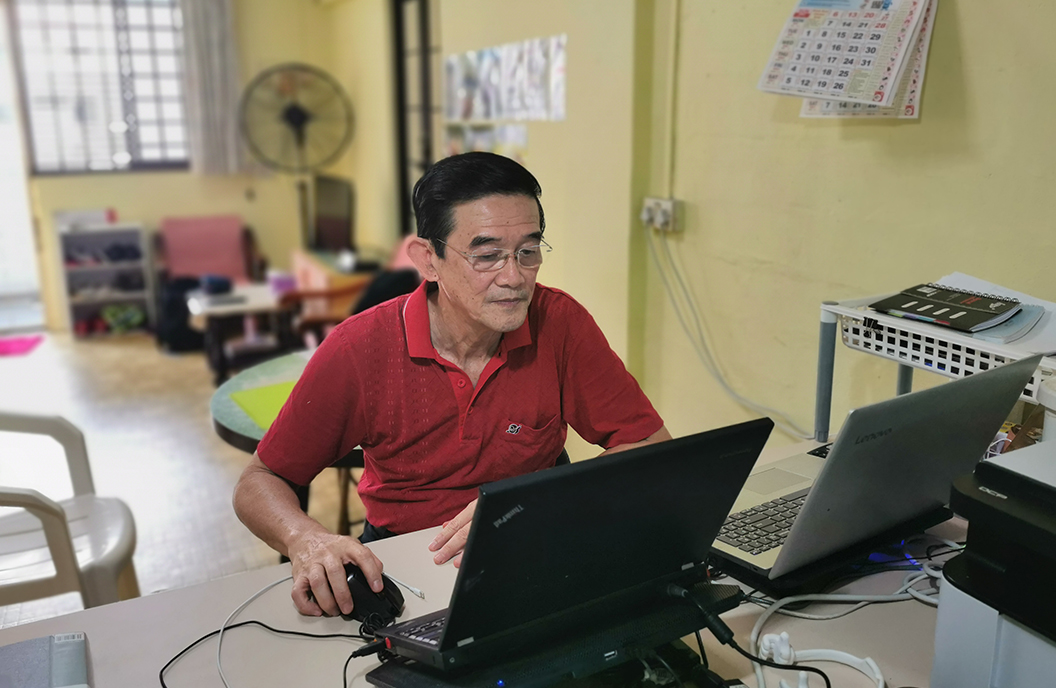
While there is currently no cure for dementia, Colin is optimistic. He continues engaging with the Alzheimer’s community, participates in seminars, and shares ideas with other caregivers of loved ones with dementia. To him, dementia does not necessarily mean “the end”.
“I’m a chemist by training, and based on all the research that I’ve read, I am hopeful that perhaps a cure may be developed in the next few years. I don’t know if that will happen, but it is something I can hope for,” Colin says.
“Until then, I will continue to take care of her every day. When she’s happy, I am happy too.”


